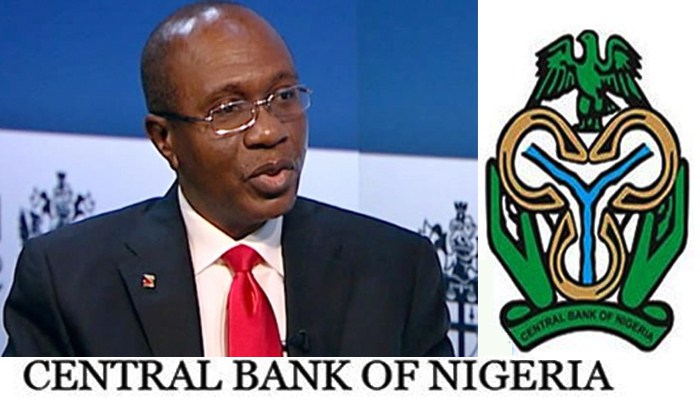Published
4 years agoon

Godwin Emefiele, governor of the Central Bank of Nigeria (CBN) has explained factors that led to 100 basis points reduction in lending rate and other decisions taken at its last Monetary Policy Committee (MPC) meeting that ended on Tuesday.
At the end of the 2-day meeting, the Committee had reduced the monetary policy rate (MPR) by 100 basis points from initial 12.5 per cent to 11.5 per cent and adjusted the asymmetric corridor to +100/-700 around the MPR.
According to Emefiele, the Committee reviewed the choices before it, bearing in mind its primary mandate of price stability and the need to support the recovery of output growth.
Explaining the reasons for the cut, Emefiele said: “After the consideration of the three policy options, members were of the opinion that the option to loosen will complement the Bank’s commitment to sustain the trajectory of the economic recovery and reduce the negative impact of COVID-19.
“In addition, the liquidity injections are expected to stimulate credit expansion to the critically impacted sectors of the economy and offer impetus for output growth and economic recovery.”
Consequently, the Committee noted that the likely action aimed at addressing the rise in domestic prices would have been to tighten the stance of policy, as this will not only moderate the upward pressure on prices but will also attract fresh capital into the economy and improve the level of the external reserves.
It however, noted that this decision may stifle the recovery of output growth and thus, drive the economy further into contraction.
“On easing the stance of policy, the MPC was of the view that this action would provide cheaper credit to improve aggregate demand, stimulate production, reduce unemployment and support the recovery of output growth,” said Emefiele while reading the communiqué from the 275th MPC meeting.
In addition, the Committee noted the tendency of an asymmetric response to downward price adjustments by ‘Other Depository Corporations’, thus undermining the overall beneficial impact of a reduction to the cost of capital.
After all considerations, members were of the opinion that the option to loose will complement the Bank’s commitment to sustain the trajectory of the economic recovery and reduce the negative impact of COVID-19.
He also stated that, liquidity injections are expected to stimulate credit expansion to the critically impacted sectors of the economy and offer impetus for output growth and economic recovery.
Based on the foregoing, the Committee decided to reduce the MPR by 100 basis points to 11.5 per cent and adjust the asymmetric corridor to +100/-700 around the MPR while it left other rates flat.
Inflation
On the rising inflation, Emefiele noted that so far, evidence has not linked the rising inflation to monetary factors but rather, evidence suggested non-monetary factors (structural factors) as the overwhelming reasons accounting for the inflationary pressure.
He said: “Accordingly, the implication is that traditional monetary policy instruments are not helpful in addressing the type of inflationary pressure we are currently confronted with.
“What is useful is the kind of supply side measures currently being implemented. MPC also expects that a downward adjustment in MPR may be necessary to further put pressure on our deposit money banks to lower cost of credit in aid of growth.”
Outlook
Emefiele said that the broad outlook for the global recovery remained uncertain, as the headwinds associated with the COVID-19 pandemic was persisting, especially as new indications of a second spike in the rate of infections, continued to dampen prospects of a near term recovery.
“The persisting volatility in global oil prices which is likely to continue beyond the end of 2020, as indicated by the deliveries in the oil futures market, signposts the likelihood of a disorderly global recovery,” Emefiele, added.
In the face of the global economic challenges, the CBN stressed the urgent need for a combination of broad-based monetary and fiscal policy measures to curb the rise in inflation and contraction in output growth.
“This will involve targeted investment by the fiscal authorities to resuscitate critical infrastructure to improve the ease of doing business across the country.”
He added: “In addition, the MPC believes the fiscal authorities can build on earlier efforts and articulate a clear strategy to attract private sector investment.
“The Bank will, however, continue to take relevant steps to ensure that the detrimental risk of inflation to the economy is contained.”














